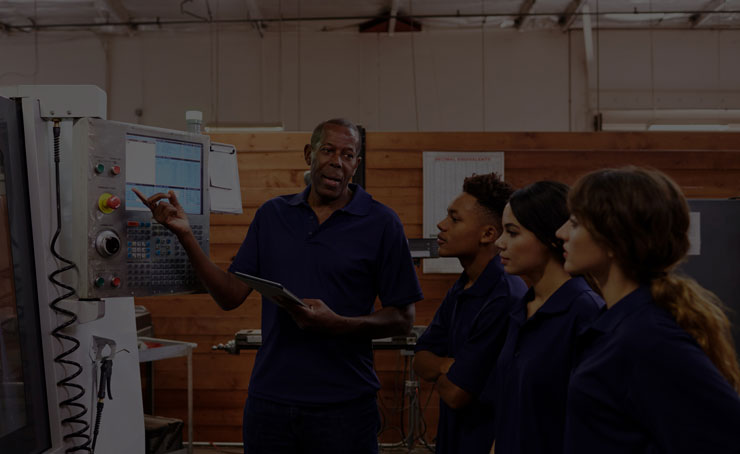Be a Blog Subscriber
Join thousands of manufacturing leaders and professionals who get the Accelerate blog delivered straight to their inbox


To grow, prosper and thrive into the future, manufacturers need to attract and retain millennials and members of Generation Z. And as research has shown, both of these generations are motivated more by mission and purpose than paycheck.1 Here are four ways manufacturing leaders can train the next generation workforce.
It’s important to remember that millennials and Gen Z want to fully understand their roles — including why those roles are important to the organizations they work for. At the same time, they want to make an impact on the world and expect their employers to feel the same way. As part of a strong onboarding strategy, be sure you include processes to teach new employees about your company’s mission and initiatives — such as those related to community or environmental programs — and let them know how they can get involved.
By creating immediate opportunities for new employees to build relationships and immerse themselves in engaging tasks, your company can start to create the foundation that can lead to long-term employment.
Research shows that younger generations want and need to see clear career pathways,2 so it is important to create and administer a formal training program tied to competency development and career growth — and to let new employees know that it exists. Having senior employees informally pass along company policies and procedures is not an effective method of training. Millennials and Gen Z want documented expectations and plans, and a structured, standardized learning and development program that includes frequent rewards and recognition. Increasingly, companies are using competency models to develop the knowledge, skills and abilities required for specific jobs. By using this common language, employers and employees can more easily have productive conversations related to performance management and individual development plans.
Millennials and Gen Z want to continue learning and developing at all stages of their careers, and they expect their employers to provide them with the resources to do so. On the other hand, employers need and want to build future leaders, so it is in their best interest to invest in continuing education for employees.
Some manufacturers are partnering with educators to keep the workforce pipeline flowing and to help retain and develop workers. A number of them are educating their future leaders through manufacturing apprenticeships and internship programs. Teaching soft skills also helps strong workers develop into trusted managers and supervisors.
Employees‘ reasons for leaving companies are often tied to unhappiness with direct supervisors, so it’s important to make sure that those responsible for training have the knowledge and skills to develop and nurture younger generations.
These days, millennials are often the ones responsible for training. A recent Zapier study indicates that 62% of millennials now have direct reports.3
And according to Mark Perna, founder of TFS Results and author of Answering Why: Unleashing Passion, Purpose and Performance in Younger Generations, millennials are exceeding expectations as managers.
“They have an inherent ability to grasp the important facts, see the interrelations and brainstorm big-picture solutions — all important traits in management,” he says.
In Tooling U-SME’s new white paper, Solving the Talent Challenge: Millennials and Gen Z in the Workforce from a Manufacturer’s Perspective, we explore how implementing training best practices helps companies to attract and retain members of these younger generations. Take a deep dive and download the whitepaper today.
This blog is the last in a three-part series featuring highlights from Tooling U-SME’s new white paper, “Solving the Talent Challenge: Millennials and Gen Z in the Workforce from a Manufacturer’s Perspective.”
Join thousands of manufacturing leaders and professionals who get the Accelerate blog delivered straight to their inbox